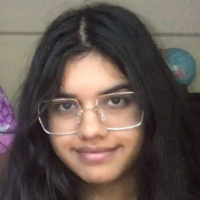Formulating Thermosensitive Radiopaque Hydrogel for Hepatocellular Carcinoma Treatment
This summer I worked in the Cormode lab on developing novel formulations of radiopaque hydrogels that could be used to treat hepatocellular carcinoma with higher efficacy than currently existing therapies, which have a sub 30% 5-year survival rate. This injectable hydrogel will cause ischemia at the tumor site to block blood flow to the tumor, and release the lactate dehydrogenase inhibitor NHI 2 to shrink the tumor. It also contains gold nanoparticles (AuNP) to provide X-ray contrast to monitor the hydrogel as it is deployed and as it degrades in the body.
The hydrogels contain chitosan, a biocompatible and biodegradable polymer, and ammonium hydrogen phosphate (AHP) crosslinker; the mixture of these two compounds is liquid at room temperature and gels at the body’s internal temperature of 37 degrees Celsius. I developed and tested several formulations of hydrogels containing chitosan, AHP, AuNP, and NHI 2 until I developed a formulation of a 1 mL hydrogel that gelled at 37 degrees Celsius between 1 to 2 minutes, which is the ideal hydrogel volume and gelation time for in-vivo testing in rat models. This formulation had a chitosan to AHP mass ratio of 0.125. I concluded that AuNP and NHI 2 do not have an effect on the gelation time of the hydrogel, and that gelation time can be entirely controlled by the ratio of chitosan to AHP, with greater amounts of AHP allowing the hydrogel to gel faster. I also did a cell viability assay of NHI 2 on HUH 7 cells, a liver cell line, and confirmed that NHI 2 is toxic to the cells, as predicted. I plan on testing the developed formulation in-vivo in rat models in the coming weeks to confirm that the hydrogel gels and degrades as expected inside the vasculature

Comments